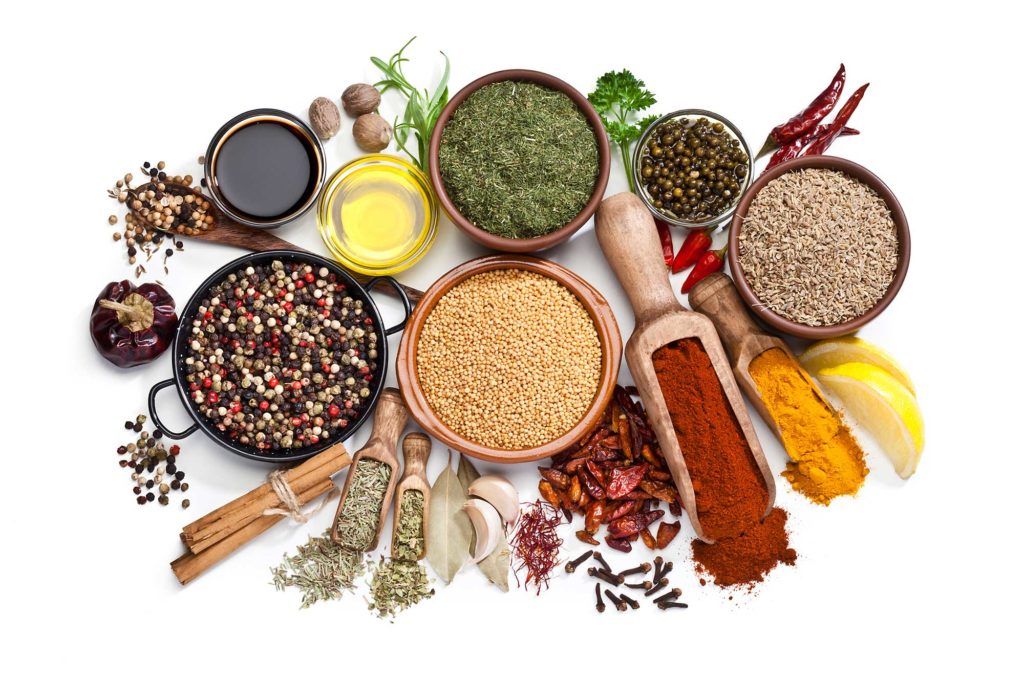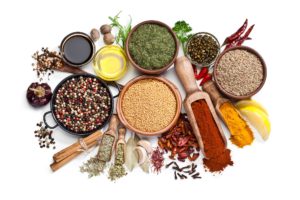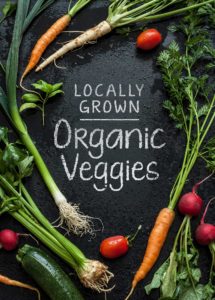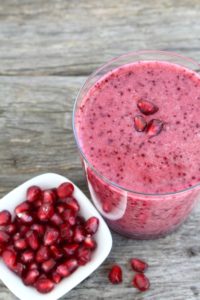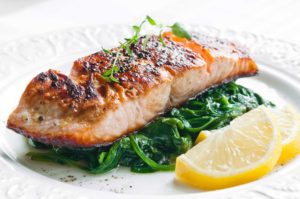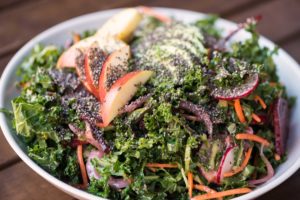Spices have been used for thousands of years to season and preserve foods, and have been valued and treasured for both their taste and medicinal properties. Modern day scientists have been studying the antioxidant and anti-cancer properties of spices and have found them to so potent that they have been referred to as “nature’s chemotherapeutic agents”
Research has shown that almost all culinary spices from black pepper to cinnamon and ginger offer anti-inflammatory and other health protective benefits, especially in cancer. A study published in 2007 in The Journal of Nutritional Biochemistry identified 31 different spices and herbs that had anti-cancer effects. Whether you are dealing with cancer or trying to prevent it, you can enjoy the flavors of these traditional spices, knowing that you are benefitting your health.
The benefits of culinary spices related to health and disease have been demonstrated through extensive scientific research in the area of inflammation. Culinary spices, especially turmeric have been shown to dampen inflammation by reducing of NF-kb, known as “Cancer’s Master Switch”. When NFKb comes into contact with carcinogens, toxins and other triggers it sends signals throughout the body that promote inflammation and activate over 100 tumor-promoting genes.
Spices have the effect of inhibiting the activation of NFkB; they can turn off cancer’s Master Switch.
Researcher Bharat Aggarwal, PhD at the MD Anderson Cancer Center has identified foods that block NFkB, the majority of which are culinary spices. Here is a partial list:
- Black pepper
- Caraway
- Cardamom
- Cinnamon
- Coriander
- Chili pepper
- Cumin
- Curcumin
- Garlic
- Ginger
- Mustard seed
You can harness the power of these health-protective spices by working them into your daily routine, beginning with breakfast
Add a little spice to your morning routine
Spice up your smoothie: add ¼ – ½ tsp of your favorite spices to a morning smoothie as a way of harnessing the power of these protective herbs. Choose from the following or add them all to turn your smoothie into a healing beverage: ½ tsp dried ginger (or 1 Tbsp fresh ginger), ½ tsp Cinnamon, ¼ – ½ tsp turmeric, ½ tsp fenugreek powder, ¼+ tsp cardamom powder (can add a sprinkle top) and pinch of saffron
Spice up your Juice: add ginger and a little turmeric to fresh carrot or green juice
Spice up your tea: chai tea can be made from green tea, rooibos tea or even from a medicinal mushroom beverage when it comes to the entire arsenal of culinary spices — from everyday black pepper to saffron and coriander — offer unique protective properties when it comes to cancer.
Cancer research on spices is mostly related to their role in dampening NFkB, known as “Cancer’s Master Switch”. NKbK can be turned on by coming into contact with carcinogens, toxins and inflammation among others. When NFkB comes into contact with carcinogens, toxins and other triggers it sends signals throught the body which promote inflammation and activate over 100 tumor-promoting genes.
Turmeric, basil, cardamom, cinnamon, ginger, oregano, rosemary, and sage are not only delicious seasonings; they also offer powerful health benefits. These common culinary herbs are used daily and liberally in many traditional cultures, where they are valued for their ability to promote detoxification and for defense against a wide variety of toxins. I suggest adding 1/8 to ¼ teaspoon of powdered cinnamon and turmeric to morning smoothies as an easy way to incorporate the benefits of these protective herbs


